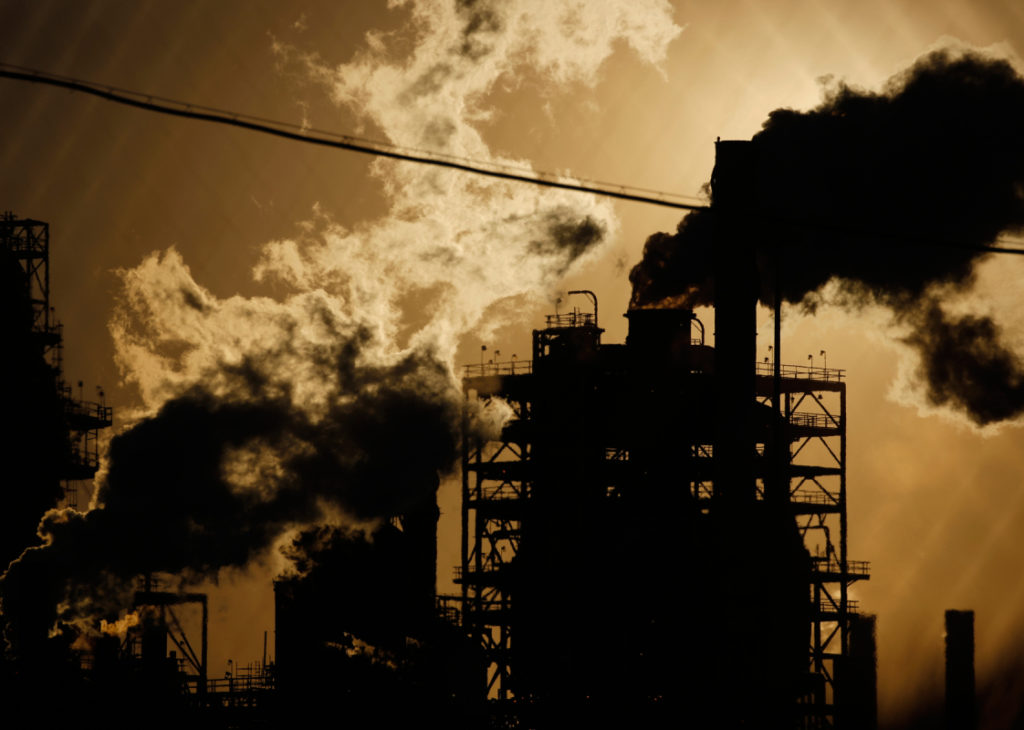A Court Ruled Shell Is Liable for Its Contributions to Climate Change. What Happens Now?


In a ruling designed to have far-reaching effects on the world’s largest oil companies, a Dutch court has held Royal Dutch Shell liable for its contributions to climate change, finding the massive energy company’s ongoing fossil-fuel operations undermine basic guaranteed human rights. The court ordered the company to act immediately to reduce those harms by slashing its global carbon-dioxide emissions by 45 percent by 2030.
The ruling from the the District Court of the Hague, where Royal Dutch Shell is headquartered, is expected to impact the company’s U.S. operations, and U.S. advocates aim to ensure the effects are felt across the industry. “For U.S. fossil-fuel companies, this is a reckoning day,” Kate DeAngelis of Friends of the Earth U.S. tells Rolling Stone. “This isn’t just going to impact Shell — it’s going to have a rippling effect.”
“This is obviously a groundbreaking verdict,” says lead lawyer Roger Cox. “There will be a lot more climate-change litigation” with groups worldwide already planning to build on the case against other fossil-fuel companies.
While courts have previously held governments liable for the harms of climate change, Shell is the first individual company to face such a ruling. Activists are determined that it will not be the last. Climate-justice groups worldwide are planning to build on the case by taking fossil-fuel companies in other countries to court. U.S. lawyers see new advantages to bolster existing and future litigation against U.S. oil companies, while campaigners ready demands for policy action by the Biden administration. Lawyers for the Shell case also warn of new legal threats to individual oil-company executives and shareholders.
This week’s ruling stems from a case that was brought in 2019 at the District Court of The Hague. Friends of the Earth Netherlands (Milleudefensie), Greenpeace Netherlands, several other groups, and 17,000 co-plaintiff Dutch citizens filed a class-action lawsuit alleging that Shell has an obligation to reduce its carbon-dioxide emissions and that it has violated human rights by fueling the climate crisis.
The Dutch court largely agreed. In a sweeping judgement that details the devastating harms of a warming planet, the necessity to restrict warming to 1.5 degrees Celsius over preindustrial levels, the significant contribution that fossil fuels and major corporate producers make to that warming, the court ruled Shell has an individual obligation therefore to reduce its own emissions on a rapid timescale.
“The court acknowledges that [Royal Dutch Shell] cannot solve this global problem on its own,” the judgement reads. “However, this does not absolve RDS of its individual partial responsibility to do its part regarding the emissions of the Shell group, which it can control and influence.” It adds, “RDS does bear an individual responsibility, which it can and must effectuate through its corporate policy for the Shell group.”
The ruling comes just one week after the International Energy Agency released a landmark report finding that there can be no investment in new fossil-fuel supply projects if the world is to avert the worst of the climate catastrophe. The Dutch court reaches a similar conclusion, saying in its ruling that the decision may cause Shell to forgo new investment in fossil-fuel extraction and limit development of its existing reserves.
Critically, it also finds that Shell is not alone in this effort, writing, “It is necessary to reduce the worldwide oil and gas extraction and to facilitate the curtailment of CO2 emissions that cause dangerous climate change; other companies will also have to make a contribution.”
Shell said in a statement that it expects to appeal the ruling. It pointed to billions of dollars in investments in low-carbon energy, including electric-vehicle charging, hydrogen, renewables, and biofuels. “We want to grow demand for these products and scale up our new energy businesses even more quickly,” Shell said. It has pledged to reduce its greenhouse-gas emissions by 20 percent within a decade, and to net-zero before 2050.
But the court’s decision finds that those actions are insufficient, intangible, and too unspecified to meet the global standard set by the Paris Climate Accord, and to meet the companies’ human rights obligations.
Michael Burger, executive director of the Sabin Center for Climate Change Law at Columbia University in New York, finds the court’s ruling historic. “This is the first time that a court of law has drawn a clear connection between a fossil-fuel company’s basic business model — the production and sale of fossil fuels — and the threats to human rights that results from climate-change impacts and [then] directed the company to do something about it,” he tells Rolling Stone.
